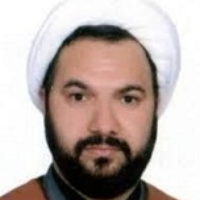The Comparative Studying of the Relations between Science and Religion in Ian Barbour and Mesbah's Perspective
The relation between science and religion has been one of the most important disturbance of scientists in recent centuries. Expressing thus issue was started in west countries since renaissance seriously and it expanded to all countries even Islamic countries. Mesbah as a philosopher and an Islamic scientist chooses completion idea which is based on his basis; e.g. philosophical foundations with reasonable relativity, paradigm acceptance which means thought basis, experience acceptance which means revelation and inspiration by innocent, monopoly on legitimacy acceptance with salvations pluralism and behavioral pluralism, general rules of conversation acceptance agreement and required backgrounds and transcendent wisdom. Also, Ian Barbour as a philosopher and a western physicist chooses compilation idea which is based on his basis; e.g. science and religion methodology parallelisms, critical realism, paradigm acceptance which means mindset, religious experience, religious pluralism, philosophic hermeneutic and scanning philosophy. Mesbah leads to separate levels of knowledge in case of its value recognizing and to accept that knowledge is multilevel and is necessary to face systematically in phenomena analysis, but Barbour works on relativity.
-
Examining the Concept of “Succession” in the Process of Lawrence Krauss’ theory of Creation and its Criticism based on Thought of Allameh Tabatabai
Hossein Rahmani Tir Kolai *, Seyed MohammadAli Sajjadian, MohammadSadegh Jamshidi Rad, Seyyed Hasan Bathay
Journal of Sadra's wisdom, -
indicators of spiritual health from Mulla Sadras point of viem
Mohammadsadeg Jamshedi Rad *, Akram محمدزادگان, Akram Rahimi, Hasan Bathayi
Journal of Islamic Studies in Health, -
کارکردهای انتظار سازنده در اصلاح ناهنجاری های اجتماعی
، مرتضی ضمیری
مجله پژوهش های اعتقادی کلامی، تابستان 1402 -
Comparison of moral motivation in the thoughts of Allama Tabatabaei and McNaughton
Mohammadmahdi Shamsi *, Mohammadreza Zamiri
Journal of Religious Research And Efficiency,




